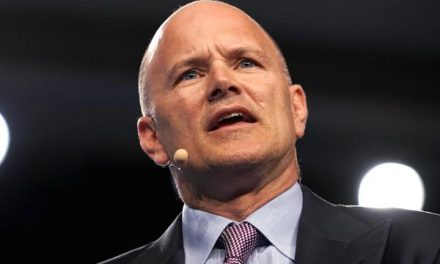Bridgewater’s Italian job which entails betting against (short selling) Italian firms to the tune of $3 billion has paid off handsomely. The story goes something like this, Italian banks are sitting on Europe’s largest pile of non-performing loans (NPL,) also known as bad loans.
Meanwhile, Italy is also in a political chaos (as usual). Italy’s home grown anti-establishment 5-Star league want the European Central Bank (ECB) to write off 250 billion euros ($296 billion) of Italian debt.
So Bridgewater’s Italian job, to short sell the entire Italian banking sector which is increasingly looking more like the leaning tower of Pisa (without the tourist) is paying off. Just how much loot the world’s largest hedge, Bridgewater has scooped up with their Italian job short sell bet is a secret.
But less of a secret is how Italy’s political and NPL crisis (Europe’s) latest crisis is impacting financial markets and it is not a picture of Spring.
Italian banks have dragged the Milan stock index to May low and the country’s sovereign debt yields are rising.


“Bridgewater’s Italian job… betting against Italian firms to the tune of $3 billion has paid off handsomely”
Will then Bridgewater’s Italian job be expanded to shorting the entire peripheral sovereign debt of Europe?
That is not an off the wall question, bearing in mind Europe has about 944 billion euros ($1.17 trillion) of non-performing loans that are weighing down the European banking sectors balance sheet.
So maybe Bridgewater’s Italian job might be expanded, extended to shorting the entire peripheral sovereign debt. That would make sense if you view the EU’s economic recovery as a debt-fueled recovery.
Youth unemployment in Southern Europe is still too high, Spain 44.4%, Greece 47.3 %. One in five of Europe’s youth are jobless, they can not support themselves.
Eurozone youth unemployment rate reached 20.9% (2016).
So there is an element of deja vu perhaps another full-blown sovereign debt crisis which occurred a few years ago in Europe is looming on the horizon -that can’t be ruled out going forward.

“Italian banking sector which is increasingly looking more like the leaning tower of Pisa”
Nevertheless, Bridgewater’s Italian job also has competition from hedge funds willing to take the other side of the bet.
Davide Serra, at London-based hedge fund manager Algebris, recently described how Mr. Dalio’s “big short” against Italian banks was going to “lose money” because he believed the country’s leaders were on a path to recovery.
Moreover, some are questioning whether Bridgewater’s Italian job which also entailed Bridgewater’s $22bn European ‘big short’ is actually a short at all.
Bridgewater usually makes bets across different asset classes and markets that may be combined into an overall exposure. So Bridgewater’s bets against European companies may actually be hedged against a corresponding long position. In other words, Bridgewater might not necessarily be “short Europe”.
“Straddle trading strategy are popular in volatile markets”
But what if Bridgewater’s Italian job were part of a straddle trading strategy where the trader/investor aims to profit from market volatility irrespective of the market’s trajectory.
Straddle trading strategy are popular in volatile markets.
Briefly, a straddle is a strategy accomplished by holding an equal number of puts and calls with the same strike price and expiration dates.
In a few words, for a straddle trading strategy to be profitable the investor/trader is betting on volatile prices within a certain time frame, say six months.
So keeping straddle trading relevant to Bridgewater’s Italian job, let’s say Italian banking stock tumble 10% in January on fears on NPL and political instability but by June the market gets wind that the politicians will bend and ECB provides roll-over loans (in exchange for more austerity through the back door). By the end of June, banking stocks rally 10% from their January lows, in other words, stocks recover from their losses.
Let’s assume Bridgewater closes their short position with a 10% profit and their long position expires at the end of June with a 0% profit. In this simple example, Bridgewater total profit would be 10%, despite the banking sector going nowhere over a period of six months.
“Bridgewater’s Italian job could very well be a straddle trading strategy, to put is simply profit from the volatility”
So Bridgewater’s Italian job, (the short trade) has gone well to date. But the game has two plays, are we now in the recovery part?
Perhaps so. Italy’s 5-Star league isn’t that anti-establishment after all since there are now talks that they have back-pedaled demands that the ECB should write off 250 billion euros of debts. Italian 10 year bonds and stocks have suddenly found buyers and the sun is shining again…
So now the hedge funds are betting big on a turnaround by Italian mid-tier banks.
What then is Bridgewater’s game?
Bridgewater’s Italian job could very well be a straddle trading strategy, to put is simply profit from the volatility. Perhaps that then is Bridgewater’s game – to straddle the volatility by simultaneously purchasing options to buy and sell stocks and make profits when stocks move up or down. A Bridgewater’s Italian job with a double play, double win if all goes tickety-boo.
















